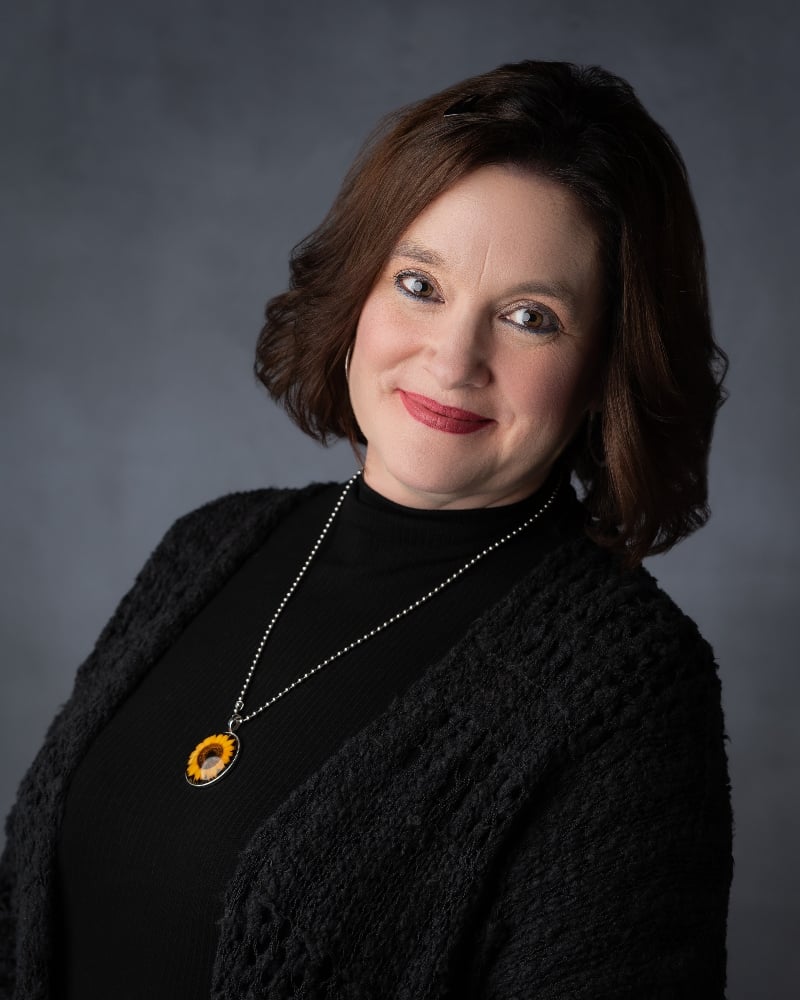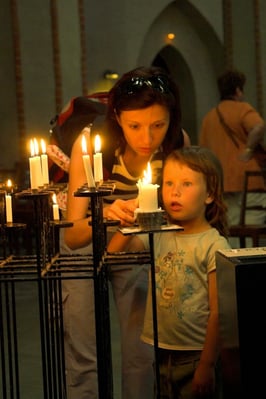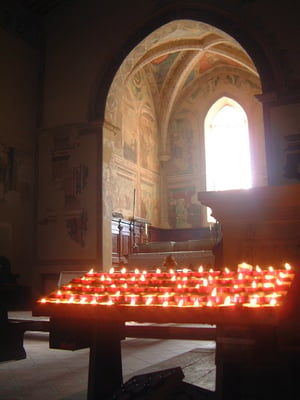Recently, I attended an event that brought some fresh Christian voices my way. The Catholic Answers conference in my husband's hometown of Glenwood, Minn., left me feeling enlightened and gifted with new ways of articulating things about the faith I've known but haven't been able to describe easily to others before.
Some of the most profound insights for me came in the opening talk, given by Dr. Charles Bobertz, who is also a Catholic deacon. Bobertz teaches theology at The College of St. Benedict's and St. John's University in Collegeville, Minn., all-women's and all-men's Catholic colleges in our neighboring state to the east.
His talk, "How Catholics Read the Bible," helped me understand different approaches not only to Scripture but in how faith and religion are lived out, particularly from the Catholic point of view, and why our version differs at times from the Protestant version.
The subject matters to me because I have so many Protestant brothers and sisters who, while they profess and believe in the same God as I do, have a different approach to faith than my Catholic one. I think it's important to grapple with our differences in order to understand one another better, so we can continue to work together to build the kingdom of God.
His talk began with an explanation of the ancient world, and how people in Jesus' time understood the world in general and faith in particular. During the time of Jesus' death, two different approaches to faith emerged: the spiritual view, and the spiritual-plus-earthly view.
The most debated question in Christian circles following Jesus' death was, according to Bobertz, "Did Jesus rise from the dead in the body or in the spirit only?" This led in turn to the two different approaches to the Christian faith; one focused mainly on the spirit, and the other, on the intermingling of both earthly and spiritual matter.
Now, consider for a moment all of the "stuff" that makes up the Catholic faith -- the bells and whistles, the incense, the vessels, the chrism oil. Think of the physical aspects of the sacraments (water, rings, robes,) and the bodily movements (genuflecting, sign of the cross, kneeling). Think of how we approach the body even after death, along with Lent and its ashes and fish.
These elements of our Catholic faith help us express our faith and can bring us closer to the Lord. But some of our Christian brothers are sisters tell us this "stuff," this earthly matter, is superfluous to what we need to live out the Christian life.
It's true, ultimately we don't need these things to get into heaven. But do they matter? Yes, we believe they do. Can they enliven and increase our faith? Yes, we have known this to be the case.
Think again of that hotly debated question: just spirit, or spirit and body? In the Jewish faith, the body was part of the deal; an emphasis on "matter" evident. It mattered to the Jews then, and now, and it matters/ed to Catholics, too. We brought with us the Jewish emphasis on the physical and its relevance to the life of faith.
Dr. Bobertz also mentioned the widely popular YouTube video from a few years back, in which a young man boldly claims that he is "spiritual but not religious." Many in the Christian world cheered his proclamation. But many Catholics scratched our heads because we don't see religion as a bad word. Religion gives form to all of those "things" I mentioned above. Religion respects and invites matter to be a part of the equation, and the body to join with the spiritual.
And therein lies this whole different approach to faith that explains some of our current divisions. "To be Catholic is to be religious and then spiritual, because God is in the world," Bobertz said. "God is in the world, making the world sacred." God is in us, too, making us sacred. And this vision of faith, he added, "affirms the sacredness of the Church."
Consider the question, "Are you saved?" This sends many Catholics into a tailspin, not because we are uncomfortable with the question but because we sense there is something more to our answer than a simple yes or no, and we also sense that if we try to give it, we'll be immediately misunderstood.
To some Protestants who subscribe to the "spiritual only" view, all you must do to be saved is "believe in your heart." But to the Catholic, the earthly matter matters, too. Baptism is the beginning point of salvation to us, and includes earthly matter: the words of the priest, which is really Christ speaking through that human vessel, "I baptize you in the name of the father, son and holy spirit;" the water poured over the child; the chrism oil placed upon the child; the white garment worn; the baptismal candle lit.
Not only are these "things" not irrelevant but we believe our conversion is set in motion at this point and continues throughout our earthly lives.
This earthly-spiritual view also affects our approach to Scripture, according to Bobertz.
"Catholics take the liturgy, the material sacredness that is in the world, and we then apply that to Scripture," he said. In other words, when we read Scripture, we are doing so from a different perspective than some Christians. "The whole understanding of what it means to be Christian in the world is different for Catholics."
This is why, too, a wedding on a beach won't do. And why it's not enough to just experience God in nature, though of course we do and can. But the church building, though not an end in itself, does contain a sacredness that cannot be found anywhere else, and that is why we reserve the sacraments for these holy buildings. God is there in a particular and special way and we honor that. We honor the earthly.
Bobertz didn't really tell me anything I didn't already know, but he said it in a way I'd never heard before, and at the thrilling realization of a new insight, I knew I'd been blessed.
The Eucharist also can be explained through this viewpoint. "The Eucharist is really the resurrected body in our midst," Bobertz said. Pretty profound.
Some young people in my life are going to these colleges, or are already there. Some will end up taking one of Dr. Bobertz's classes -- lucky them. I feel certain they'll come away with a clearer understanding and deeper appreciation for their Catholic faith.
Our faith and perspective is a treasure, and Bobertz reminded me of that in sharing his perspective, which really comes down to these two simple words:
"Matter matters."
Q4U: Does matter matter to you?
Copyright 2014 Roxane Salonen
About the Author

Roxane Salonen
Roxane B. Salonen, Fargo, North Dakota (“You betcha!”), is a wife and mother of a literal, mostly-grown handful, an award-winning children’s author and freelance writer, and a radio host, speaker, and podcaster (“ Matters of Soul Importance”). Roxane co-authored “ What Would Monica Do?” to bring hope to those bearing an all-too-common cross. Her diocesan column, “ Sidewalk Stories,” shares insights from her prolife sidewalk ministry. Visit RoxaneSalonen.com




.png?width=1806&height=731&name=CatholicMom_hcfm_logo1_pos_871c_2728c%20(002).png)
Comments